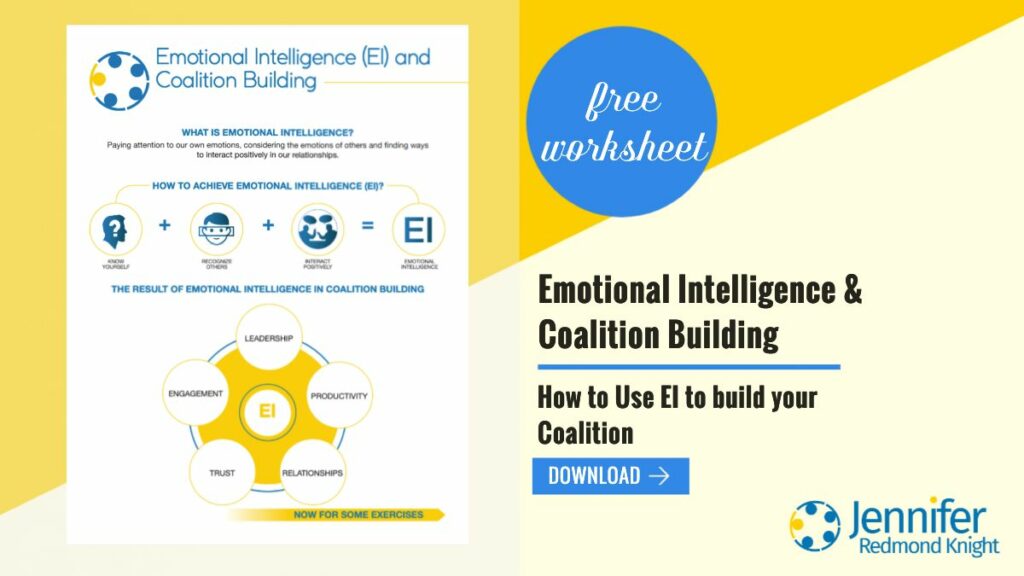Our coalition work is relationship work. Without people and relationships, we would not have coalitions. While we may be focused on an area of collective interest, our work is all about people. This is why the concepts of Emotional Intelligence are so important. Last Friday, two tornadoes swept through our city. While we may have coalition work that is still happening, in these moments and the days following, our work is really focused on checking on our friends, colleagues and community. If members of our team need support, we support them and practice compassion and empathy in the process. Does this mean we will not be getting our “coalition work” done? Yes and No. While we will likely not be accomplishing specific goals in our action plans, we will be nurturing and supporting relationships that are the essential part of working together in the future. Join me this week as we reflect on three practices you can apply to support your coalition relationships when they may be facing challenging times.
Check in.
I am incredibly honored and blessed by friends and colleagues who reached out from around the world to check in on our family last week. When you know things may be happening in the lives of your coalition members, send a text message, a social media message or an email. Give them a call and let them know that you are thinking of them. By taking a moment to check in, you are showing incredible kindness and support. Although you may not know what to say or be able to tangibly “do” anything in the situation, by taking the time to reach out, you are “doing” a lot!
Be gracious.
When connecting with people who are experiencing challenging situations, show extra kindness. Be willing to believe the best and provide support even if the people are forgetting your last conversation, appear frustrated or distracted during a meeting or are no longer responding to your emails. One way to be gracious is to check in again and listen (if they answer or respond). Another way to be gracious is to give the person time and space to re-engage. While we may not know what to say or what to do, being available, listening and showing compassion and kindness is a way to be gracious. We do not need to understand their situation or have a solution. As we practice being gracious, we provide room for discomfort and let go of judgment. Although being gracious is not always easy, this is one of the best ways to support our coalition friends and colleagues during challenging times.
Practice flexibility.
We all have timelines, deadlines and projects related to our coalition work. Although we have to set deadlines to keep the momentum and our projects, when our coalition members are experiencing life challenges, we have the opportunity to be flexible. In some situations, this means making adjustments to our timelines and creating extensions. At other times, this may involve asking someone else to lead the effort or provide the kind of support needed on a project. Since we do not know the extent of the situation or the capacity or interest of the person, we always want to ask first. While some people may need time to take care of other things and not work on a coalition project, other people may find working on a coalition project unrelated to their current situation to be helpful and healing.
What are you going to practice this week as you support your coalition members who may be experiencing challenging situations?
If you haven’t yet downloaded my Emotional Intelligence and Coalition Building Worksheet, check it out here. This will help you reflect and continue to practice building your Emotional Intelligence skills.

Photo by Annie Spratt on Unsplash

